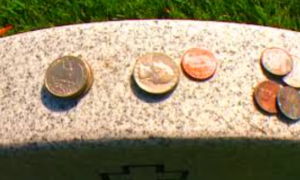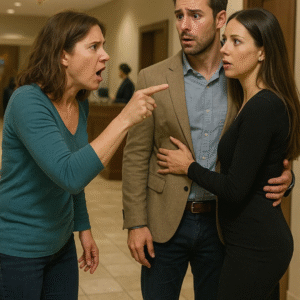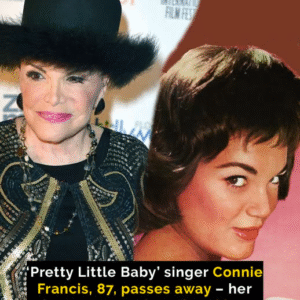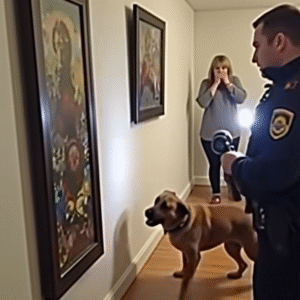Coping with Loss
Losing a loved one is incredibly difficult. Many people express their grief through elaborate tributes, such as floral arrangements, or even by offering food and drinks.
A Meaningful Tradition
One powerful tradition, especially for military families, is placing coins on gravestones. This practice holds deep meaning for those left behind.
The Origins of Placing Coins on Gravestones
The exact history of this tradition remains unclear. Some suggest it dates back to the Roman Empire, though Snopes reports that there’s no solid evidence to support this claim. What is clear is the immense sacrifices made by military members—sacrifices that are hard for many to fully grasp.
Honoring the Fallen
It’s no surprise that those who served together often find ways to honor their fallen comrades. Some speculate that leaving pennies on gravestones became popular during the Vietnam War. During this time, it provided a quiet way for people to communicate with each other, avoiding political debates or difficult conversations with the deceased’s family.

A Practical Gesture
According to the American Legion, leaving a coin became a simple, practical way to show that someone had visited a soldier’s grave. It avoided uncomfortable discussions about the war, especially given the country’s divided views at the time.
Symbolism Behind Each Coin
Each coin left on a grave carries its own meaning.
- A penny simply shows someone visited.
- A nickel means the visitor and the deceased trained together in boot camp.
- A dime symbolizes that they served together, even for a short time.
- A quarter tells the family that the person who left it was with the deceased when they died.
Additional Military Traditions
Challenge coins are another long-standing military tradition. While they don’t have monetary value, they carry immense symbolic significance. This tradition grew during World War I and reflects the unity of those who served together.
Coins in Other Cultures
Coins also play a role in various cultural rituals, often symbolizing good luck, wishes, or even wealth. In some cases, people were buried with their money. For example, Abraham Lincoln reportedly had $2.50 placed over his eyes when he was buried.
A Deeper Connection
While the tradition of leaving coins on gravestones may not directly relate to the monetary symbolism, it represents a much deeper connection. It’s a way for families and comrades to show that the sacrifices of military members have not been forgotten.

Related Posts
Chapter 1: The Discovery For years, Derek and I had lived what seemed like the perfect life. We had built a home, raised two wonderful kids, and,…
Singer Connie Francis passed away at age 87. The singer was popular throughout her life, with her song ‘Pretty Little Baby’ from 1962 gaining virality in recent months…
Senate Democrats’ tactics to delay proceedings have concluded, yet Senate Republicans are still not close to casting a final vote on President Donald Trump’s “Big, Beautiful Bill.”…
Princess Charlotte and the Echoes of Diana: A Resemblance Noticed by Many Princess Charlotte, the daughter of Prince William and Princess Catherine, has drawn attention for her…
In a quaint neighborhood, a strange incident unfolded that left everyone in disbelief. It all began when a trained K9 dog, known for its sharp senses, started…
Missing Individual Located After 10 Years Behind Supermarket Shelves A long-standing missing persons case has reached a resolution in a shocking and sorrowful manner. The remains of…






